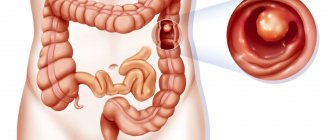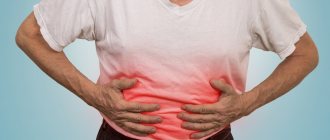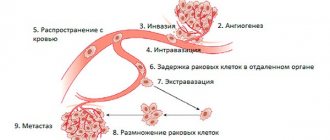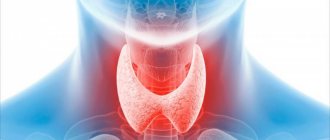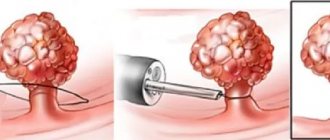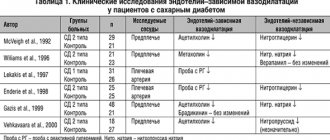Growing attention to food components has led to increased interest in inulin. It is talked about as a prebiotic, dietary supplement and even a way to lose weight. However, many people have no idea what inulin is. In the article we will understand what the substance is and what benefits it has for the body.
Inulin is a polysaccharide that represents the group of fructo-oligosaccharides. As a rule, it is found in the roots and tubers of plants. Inulin is a prebiotic - it stimulates the growth of beneficial microflora.
Useful properties of inulin
Prebiotics have a beneficial effect on the state of the intestinal microflora, and therefore human health in general. The formula of the structure of polysaccharides is close to the formula of fiber, natural dietary fiber. In this regard, until quite recently, such food components were considered ballast: researchers assumed that they had no significant significance and could only stimulate intestinal motility. But as metabolic processes were studied, the beneficial effects of prebiotics became apparent.
In the acidic environment of the stomach, nothing happens to probiotics. Inulin is partially broken down only in the intestines. Researchers Malkoch A.V., Belmer S.V., Gasilina T.V. claim that inulin “is utilized by bifidobacteria and lactobacilli and promotes their growth” (Malkoch, Belmer, Gasilina, 2008, p. 151). Essentially, the beneficial bacteria in your colon convert inulin into a nutritional medium. For them, inulin is an energy substrate. Enterobacteriaceae also require inulin and break it down to form organic acids.
An increase in colonies of bifidobacteria and lactobacilli leads to the displacement of pathogenic, opportunistic flora, and therefore is a prevention of infectious and inflammatory diseases. Normal intestinal microbiocenosis is one of the main conditions for the functioning of the immune system.
The remaining part of inulin, moving through the intestines, helps remove toxins and is involved in cholesterol metabolism.
Doctor Kashirskaya N. Yu. in her work says that “inulin, in addition to stimulating the growth and activity of bifidobacteria and lactobacilli, increases the absorption of calcium in the large intestine, i.e. reduces the risk of osteoporosis, affects lipid metabolism, reducing the risk of atherosclerotic changes in the cardiovascular system and, possibly, preventing the development of type II diabetes mellitus, there is preliminary evidence of its anticarcinogenic effect” (Kashirskaya, 2000, p. 572).
Inulin for the intestines is one of the most effective prebiotics. It contains up to 60 monomers, which makes it possible to meet the needs of intestinal microflora throughout almost the entire gastrointestinal tract. It can be introduced into fermented milk products, increasing their beneficial effect on microflora.
Benefits of inulin
The list of beneficial properties of inulin is constantly expanding. Thus, its positive influence extends far beyond the digestive tract.
The health benefits of inulin discovered to date include []:
- maintaining the growth of intestinal microflora;
- normalization of the frequency and nature of stool;
- increasing immunity;
- antidepressant effect;
- normalization of vitamin and mineral metabolism;
- improvement of carbohydrate and lipid metabolism;
- weight loss.
The most studied and significant effects of the polysaccharide are discussed in detail below.
Normalization of digestion
The intake of inulin from food allows you to create optimal conditions for the growth and development of beneficial intestinal microflora. According to research results, the polysaccharide obtained from artichoke helps support the growth of 5 types of lactobacilli and 4 types of bifidobacteria []. Normal intestinal microorganisms break down inulin and, during their vital activity, release biologically active substances, including short-chain fatty acids, which stimulate intestinal motility. They speed up the passage of food through the gastrointestinal tract, prevent constipation, and facilitate bowel movements. In addition, beneficial intestinal bacteria prevent pathogenic microbes, viruses, and fungi from settling on the intestinal mucosa, which reduces the risk of intestinal infections.
If the intestines work normally, it forms a barrier that prevents dangerous microbes from entering the body. In addition, the intestine is the largest immune organ in humans: about 80% of all immune cells in the body are located in its mucosa.
Inulin has been proven to have a positive effect on intestinal barrier function and immunity in general. The polysaccharide, together with beneficial intestinal bacteria, stimulates the formation of immune cells in the bone marrow, activates the production of antibodies, and reduces the strength and duration of inflammation [].
Inulin for weight loss
In Russia, approximately 55% of adults have problems with excess weight. The polysaccharide is used as a functional product to reduce excess weight. Inulin promotes weight loss through the following mechanisms []:
- Causes a long-lasting feeling of satiety. When water is added it forms a gel-like substance. After swallowing, such a substance enters the stomach, creates the illusion of fullness of food, puts pressure on the stomach receptors and slows down its emptying.
- Binds and removes cholesterol, bile acids and fats from the digestive tract , that is, it acts as a sorbent. Polyfructosan has a mucous, fibrous structure; it envelops the intestinal wall and forms a difficult barrier to the absorption of large molecules.
- Used as a substitute in food products. The polysaccharide has a sweetish taste and gel-like texture, so it is used to replace high-calorie ingredients in foods - saturated fats and simple sugars.
The caloric content of inulin is only 1-1.5 kcal/g (for comparison, the caloric content of fat is 9 kcal/g); compared to carbohydrates, its energy value is only 25-35% []. Thanks to the rich, creamy flavor of the polysaccharide, it successfully imitates the taste of fats [].
The sweetness level of inulin is about 10% of sucrose, so it is also used as a sweetener[].
Improving carbohydrate metabolism indicators
Inulin may help lower blood glucose levels both on its own and through weight loss. Inulin simultaneously works in these two directions, its effectiveness is confirmed by biochemical tests: when consuming polyfructosan, there is a decrease in the concentration of blood glucose, glycosylated hemoglobin, insulin and insulin resistance [].
Consumption of inulin promotes []:
- Slowing down the absorption of glucose into the blood. Forming a viscous substance, it retains glucose molecules, as a result of which it is absorbed gradually, without sudden jumps in the blood.
- Decreased insulin production by the pancreas. The higher your glucose level rises, the more insulin is produced. Gradually, cells and tissues become insensitive to insulin, glucose is not used, which leads to an increase in fat deposits, weight gain, and vascular damage. The polysaccharide ensures a gradual release of glucose into the blood, and therefore insulin production decreases.
- Increased cell sensitivity to glucose. Polyfructosan is able to restore the process of glucose delivery into the cell, which speeds up metabolism, prevents fat deposition, and reduces the accumulation of glucose in the blood.
- Improving liver function. Inulin improves the condition of the liver in case of its pathology and at the same time reduces the load on the organ due to its ability to bind and remove toxic products from the intestines. The process of glycogen formation in the liver is activated, which reduces glucose levels.
Improving lipid metabolism indicators
Normal lipid metabolism is very important for maintaining healthy, elastic and clean blood vessels. Inulin is effective in this case too. Being a natural anticoagulant, it prevents the formation of blood clots inside the vessels and their sticking to the fatty plaque. By relieving inflammation, the polysaccharide maintains the health of the vascular wall, it remains smooth, and fat molecules do not manage to cling to it.
Inulin is able to reduce the level of “bad” cholesterol and endogenous fats (triglycerides), which are the main components of the fatty plaque. In addition, polyfructosan improves the absorption of magnesium, a trace element that is part of the structure and affects the activity of more than 300 enzymes that regulate the activity of the cardiovascular system and the content of lipids in the blood. Inulin helps lower blood pressure in people with fat metabolism disorders due to the production of a vasodilator factor (nitric oxide).
Maintaining Bone Density
It has been proven that inulin increases the body's absorption of calcium and other important microelements: magnesium, iron, phosphorus. This is due to more active absorption of microelements by the intestinal wall in the presence of a polysaccharide, which somewhat acidifies the environment in the intestinal cavity and increases the bioavailability of minerals. As a result, bone mineral density increases, the formation of new bone tissue accelerates, and the processes of its destruction slow down [].
There is an acute problem of vitamin D deficiency in the world, especially in countries located at high latitudes. Without vitamin D, calcium from the blood is not able to penetrate into the bones and, instead of being beneficial, can cause harm by being deposited in blood vessels and soft tissues. It has been shown that the addition of inulin to food helps to increase the production of vitamin D precursor in the intestines, which is then converted in the skin under the influence of the sun into the active form of D3 and realizes its biological effects [].
Is there a deficiency of inulin?
A lack of inulin does not cause direct harm, such as a deficiency of certain vitamins or specific beneficial bacteria. But it is important to understand that changes in the nutritional pattern of modern humans lead to a deficiency of prebiotics in general. Intensive agricultural production, soil depletion, and the emergence of genetically modified products have caused a decrease in the volume of dietary fiber and vitamins in crops. Therefore, the use of additional prebiotics, such as inulin, may be justified. They ensure the well-being of microflora, a normal amount of beneficial intestinal bacteria, and therefore uninterrupted intestinal function. The fight against prebiotic deficiency should include a balanced diet and consumption of foods that are rich in these components.
How to use?
Although inulin is safe for most people, it is recommended to start slowly. Start regularly adding inulin-rich foods to your diet.
If you would like to use a Myprotein supplement, start with 2-3 grams per day for at least 1-2 weeks, after which you can begin to increase your dosage. Gradually increase the amount to the manufacturer's recommended 5-10 grams per day. Keep in mind that most studies used daily dosages of 10-30 g of inulin, with subjects gradually consuming this amount of inulin.
Inulin content in foods
Inulin is found in large quantities in the tubers and roots of dahlias, artichokes and dandelions. Among food products, the leaders in the content of this polysaccharide are chicory root, garlic, leeks and onions. It is also found in large quantities in raisins, asparagus, and bananas.
Should I take inulin?
If you decide to get the most out of your diet, want to improve your body's health and care about the health of your intestines, then you should definitely take inulin. The only obstacle to taking it may be an individual allergic reaction. No further contraindications have been identified. If your diet is already fairly balanced and you do not want to change anything by adding certain foods to it, the best option would be to use inulin in the form of a dietary supplement.
Additive
Myprotein's inulin dissolves quickly in any liquid and has a neutral taste, making it ideal for everyday use. Think for yourself, you just need to dilute it with water and drink it. This useful supplement will do its job itself.
Inulin in supplements
Most of the inulin offered as supplements and in finished products is produced from Jerusalem artichoke tubers. For this purpose, varieties with a high content of the substance are used. The result of production is a concentrated powder with a sweet taste. All the beneficial qualities of inulin are preserved in preparations obtained from Jerusalem artichoke.
It is important to remember that the benefit of inulin for the body and figure also lies in slowing down the absorption of fats and simple carbohydrates. Therefore, in consultation with a doctor, it can be used as an additional means for weight loss.
Inulin may be part of a dietary supplement or medication. For example, it is contained in the drug “Fitomucil Sorbent Forte”. The product consists of a natural enterosorbent - the shell of Psyllium plantain seeds, as well as inulin and live probiotic bacteria. The drug is used for diarrhea, intoxication, including food poisoning, as well as allergic dermatoses. Inulin in the drug promotes the growth of beneficial microflora and accelerates recovery.
